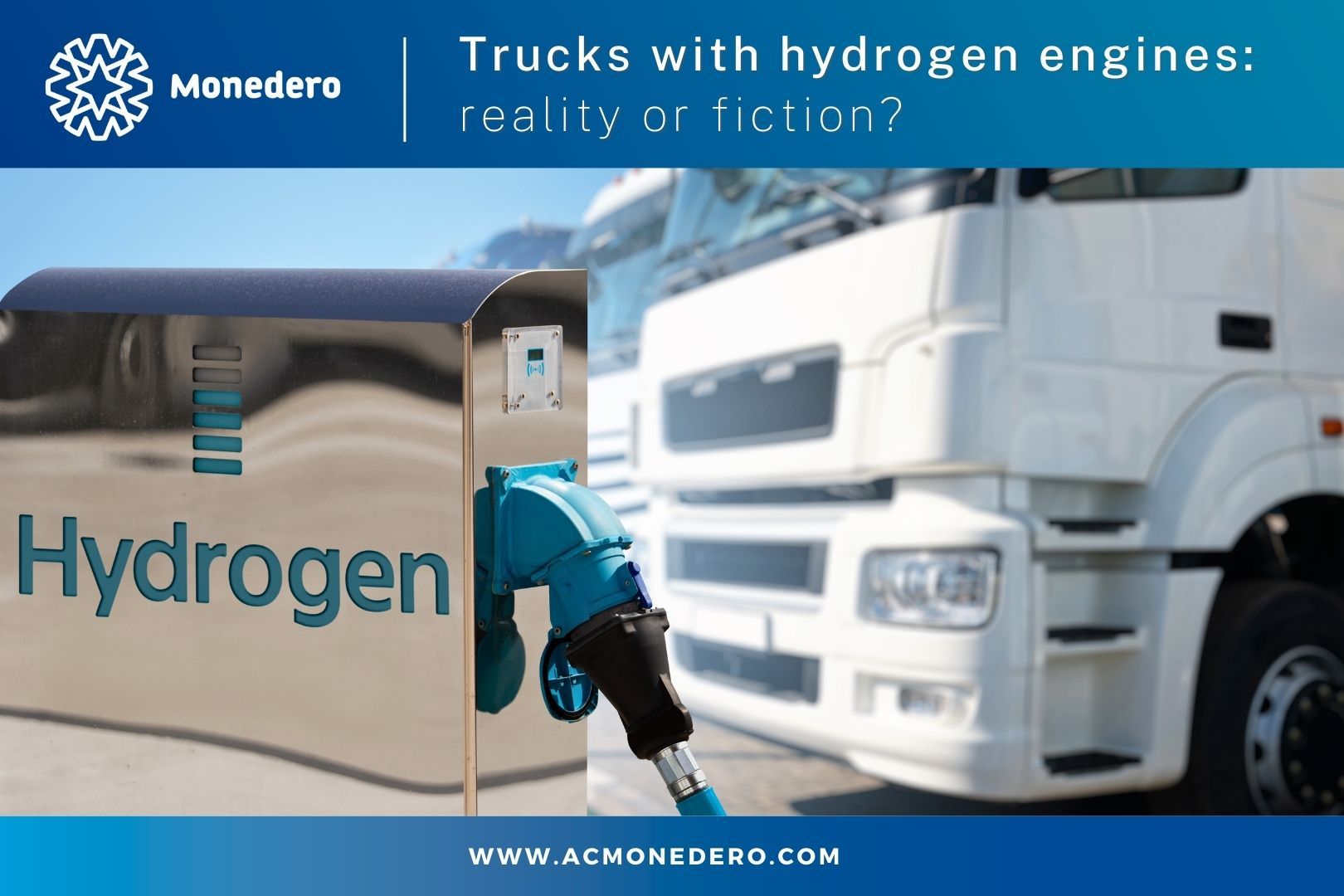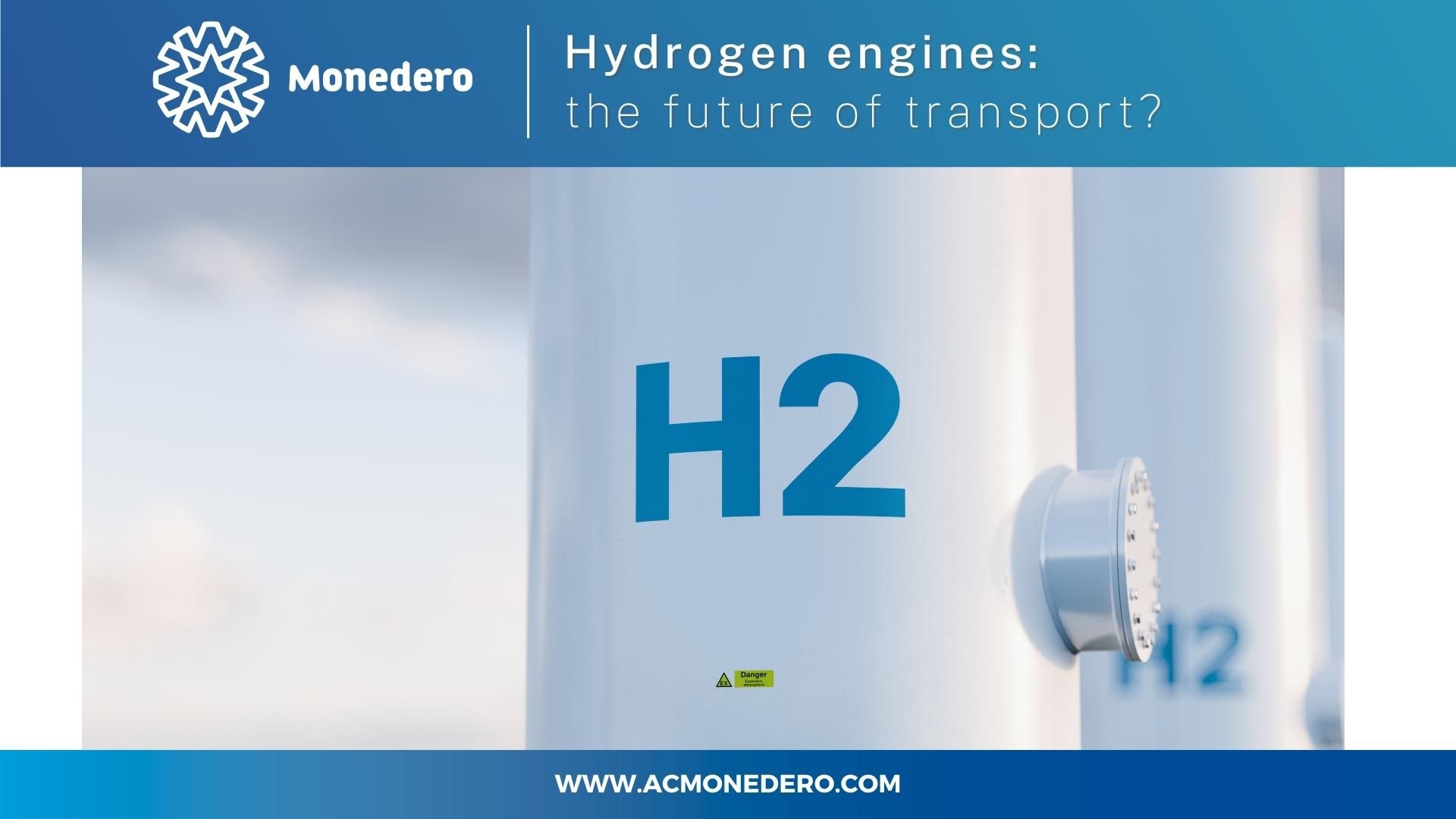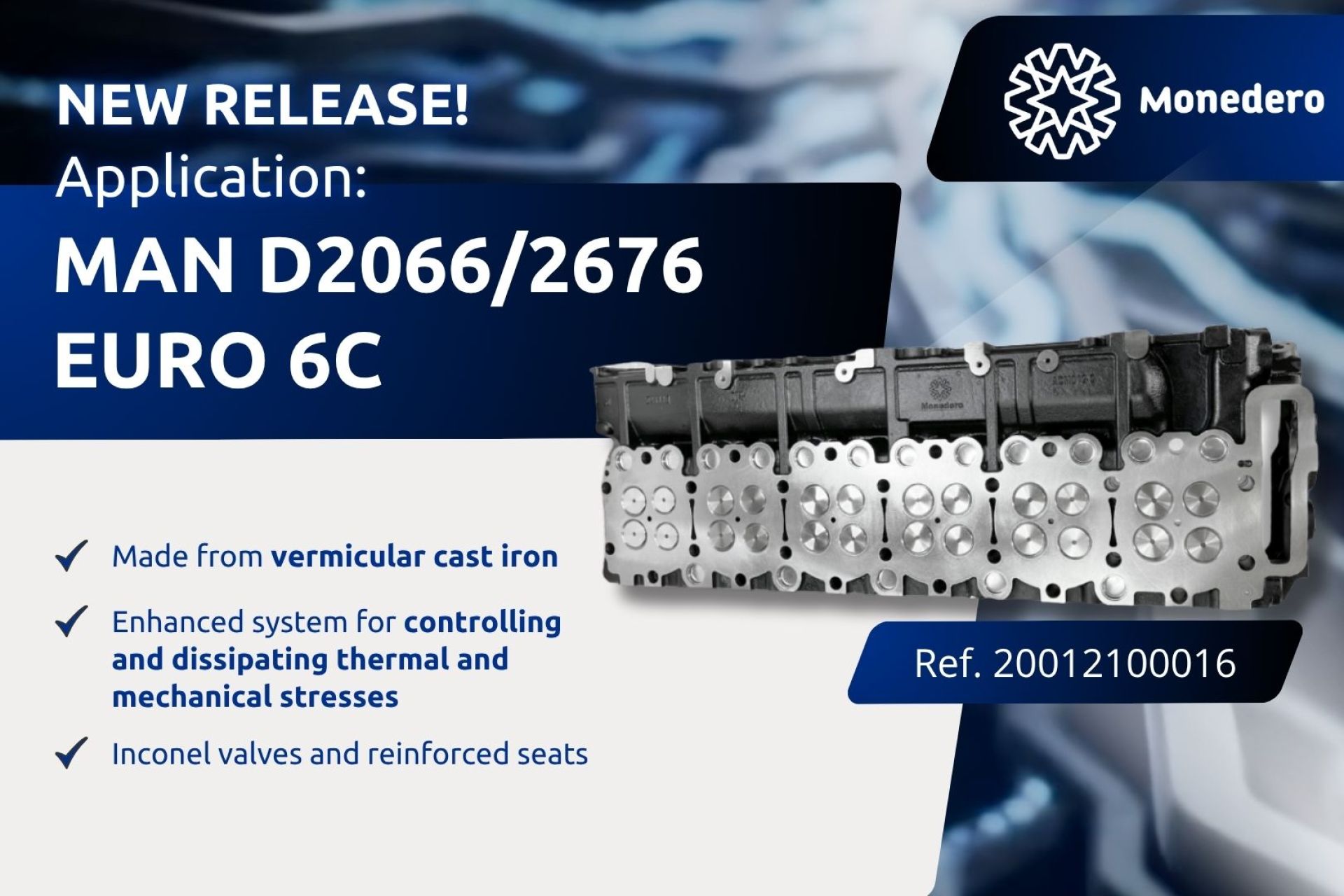Hydrogen trucks, fact or fiction?
Hydrogen is proposed by the European Union as a good alternative to gasoline or diesel, but doubts arise as to whether it is applicable to all types of vehicles.
As we mentioned in the previous blog post, in recent months there has been a heated debate on measures to achieve climate neutrality in the EU by 2050. For this reason, the European Parliament is in the midst of negotiations to bring forward a law banning the manufacture of combustion cars from 2035.
This law is causing controversy because the leading countries in the manufacture of combustion vehicles, such as Germany and Italy, are opposing it.
Among the various alternatives to diesel or gasoline is green hydrogen, a non-polluting gas obtained through the use of renewable energies. The characteristics of green hydrogen include the fact that it is the lightest chemical element in existence, can be stored and is sustainable.
The main use of green hydrogen is to be a clean fuel for vehicles and transport of all kinds, however, it is also used in other sectors and practices. It should be noted that Spain is a major producer of green hydrogen, since the largest plant in Europe is located in our country, specifically in Puertollano (Ciudad Real).
Therefore, it would be necessary to take into account the economic advantages that this could mean for Spain, because, as the gas can be stored, it can be sold to other countries. Consequently, this could benefit the national economy, while collaborating in the ecological transition of other territories.
Hydrogen engines
It appears that diesel engines may have a second life, as engineers at the University of New South Wales in Sydney have developed a system to make a diesel engine run on hydrogen. Among the advantages of this system are that the engine produces 85% less carbon dioxide emissions and is 26% more efficient than a diesel engine.
But is this applicable to all types of vehicles? To date, the vast majority of scientific tests have been carried out on passenger cars, which may lead one to think that this system may not be equally efficient in its application in heavy commercial vehicles or trucks.
Trucks with hydrogen engines?
As mentioned in the previous section, most studies to date have considered passenger cars. Therefore, doubts arise as to whether trucks could be efficient with hydrogen as fuel, since they make long-distance trips with a large load.
Although we still cannot give a clear answer to this question, some studies and projects seem to shed light on this issue.
Mercedes-Benz GenH2
At the IAA in Hannover in September 2022, the prototype of the Mercedes-Benz GenH2 truck was exhibited and, in addition, tests were carried out with customers selected by the brand. At that time, green hydrogen obtained from the Shell station near the fairgrounds was used to observe the vehicle’s operation.
Months later, in November 2022, Daimler Trucks conducted more extensive testing of its hydrogen-powered trucks on public roads, at high altitude and fully loaded.
The hydrogen truck successfully crossed the Brenner Pass, which is one of Europe’s main freight arteries. Daimler is working to demonstrate the viability of the Mercedes-Benz GenH2 and is aiming for a range of more than 1,000 kilometers.
So far, the tests have yielded several conclusions. First, that the performance is comparable to that of a conventional diesel truck. Secondly, that the truck using liquid hydrogen has a longer range than those using gaseous hydrogen. The reason for this last characteristic is that liquid hydrogen has a higher energy density, relative to volume, than gaseous hydrogen. And so trucks using liquid hydrogen do not have to be refueled as frequently.
Among Daimler Trucks’ objectives is to continue to conduct further tests in mountainous terrain during 2023, with the aim of improving its trucks and starting series production as soon as possible.
Ocean’: Toyota innovation
Toyota’s North American subsidiary has developed, together with the US-based Kenworth Truck Company, an electric truck powered by hydrogen fuel cells. The truck is a Class 8 T680 FCEV based on the Toyota-Kenworth T680 FCEF truck.
The results have shown that this system is comparable in terms of efficiency and range to diesel engines. It was found that it achieved a range of almost 500 kilometers with a full tank and a full load without refueling.
Thus, there are indications that this new technology can replace fossil fuels in trucks and, in this way, achieve the objectives in the fight against climate change and pollution.
The ‘Keyou’ truck
German company Keyou has converted a combustion engine of an 18-ton truck to use hydrogen as fuel instead of diesel. Behind this project is the former BMW engineer, who has experience in R&D projects to use hydrogen in BMW cars.
In addition, Keyou announces total costs close to those of diesel, with a useful life of more than 700,000 kilometers and a range of 500 kilometers, all without CO2 emissions.
Nikola’s trucks
While in the case of cars, efforts are focused on battery electric vehicles, the use of hydrogen fuel cells seems to be increasingly gaining ground in freight transport.
However, hydrogen still faces a number of challenges, from production to storage. To meet these challenges, Nikola is proposing a possible solution to this problem: mobile hydrogen generators capable of refueling other fuel cell vehicles.
In this way, Nikola has announced a hydrogen truck that feeds other fuel cell industrial vehicles thanks to a mobile hydrogen feeder.
Conclusions
The latest projects and studies seem to indicate that the use of hydrogen fuel cells is a good alternative to the use of fossil fuels, as they maintain their efficiency and autonomy. However, there are still barriers in terms of production, storage, logistics and infrastructure.
Firstly, for hydrogen to be an environmentally friendly solution, it must be green hydrogen, i.e., produced from renewable energy, which is rare.
On the other hand, there are limitations in terms of distribution and storage of hydrogen, because it is a highly flammable gas with a very low density.
Finally, there is the problem of logistics, since hydrogen refueling sites would have to be created every 100 km. In addition, everything seems to indicate that refueling time would be longer than for diesel. The latter could delay the delivery of goods and lead to the need for a larger fleet to carry out the journeys.
In conclusion, we are getting closer and closer to the changeover, but we must continue to work on minimizing the drawbacks. The main objective is to make transportation as sustainable as possible in the future, without losing efficiency or vehicle autonomy along the way.


















